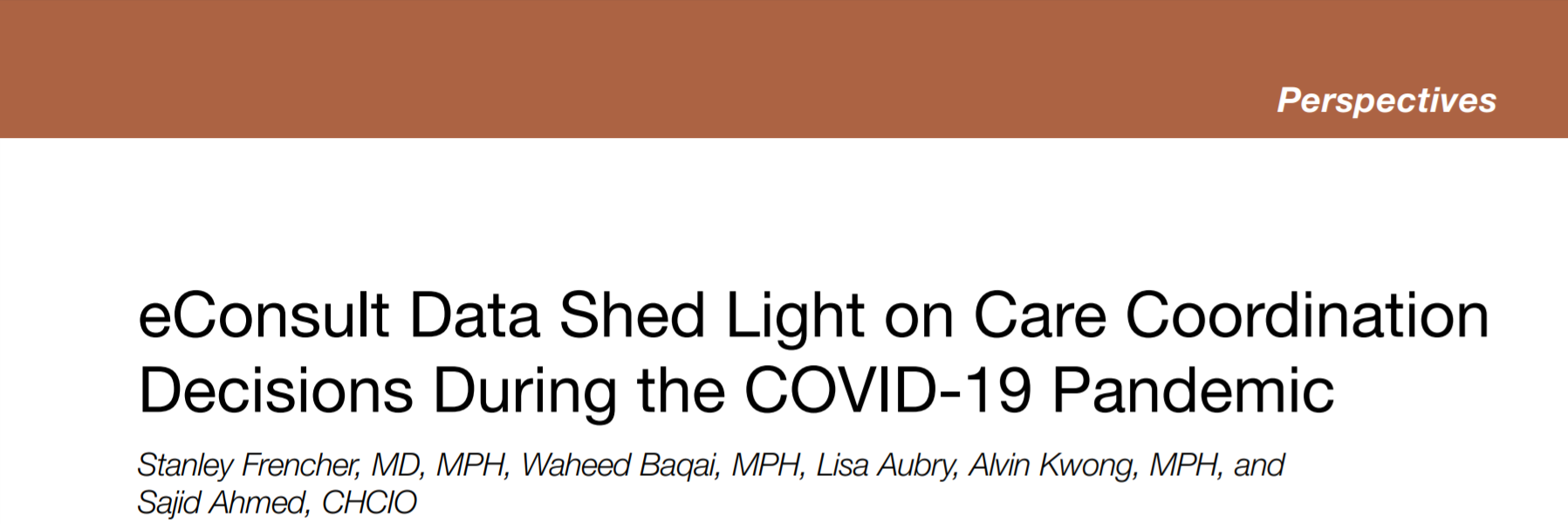


Authors: Stanley Frencher, MD, MPH, Waheed Baqai, MPH, Lisa Aubry, Alvin Kwong, MPH, and Sajid Ahmed, CHCIO
Summary:
In this perspective style article, healthcare leaders interpret data collected from the second-largest eConsult program in the U.S.—the Multi-County eConsult Initiative (MCeI)—before and during COVID-19 to shed light on care coordination decisions with respect to specialty resource access.
Before COVID-19, the MCeI team observed high rates of referrals for face-to-face specialist visits in concluding eConsult exchanges. In the midst of the pandemic, face-to-face rates for the same specialties and physical ailments lowered significantly. Such outcomes indicate that it was not an internal element of clinical care itself, but rather an environmental factor—the pandemic—which drove clinicians to make decisions about referrals and care coordination.
Physicians scrutinized individual cases more and were not as quick to recommend a face-to-face visit. If translated to healthcare delivery post-pandemic, this ability to cut out unnecessary in-person specialist visits will free specialists’ schedules and spaces for patients who truly require in-person specialty care. Such a dynamic will, in turn, improve appropriate access to care for everyone and reduce unnecessary costs to the healthcare system at large.
We argue that because physicians were forced to pay extra attention to limitations in the healthcare system during COVID-19, they were able to offer better quality, appropriate, and efficient care for patients using eConsult. The pandemic has proven eConsult’s value as a tool for effective care coordination. We should continue to leverage this provider-to-provider communication channel to reduce unnecessary utilization of scarce resources both during and especially beyond the pandemic.
Unprecedented data from a massive eConsult program reveals the evolution of care coordination precipitated by a pandemic, yet which should ultimately outlast the COVID-19 crisis.
Key Takeaways:


Sorry, the comment form is closed at this time.